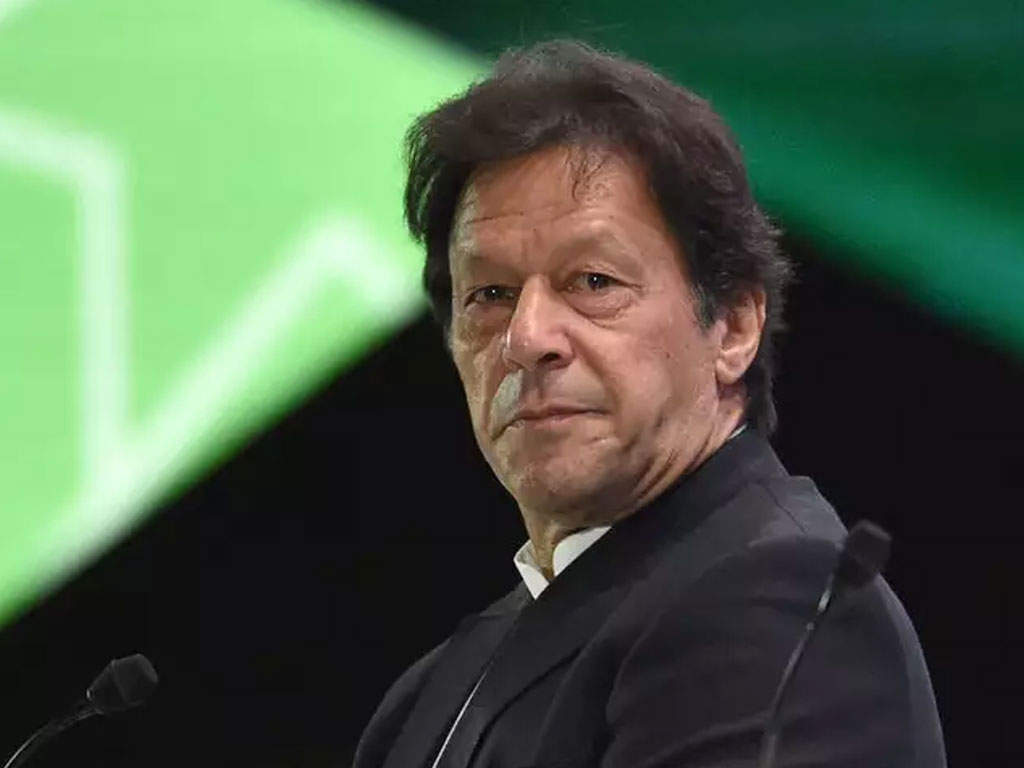Should Pakistan denuclearize, if India does?

To the otherwise much ballyhooed 'reset' of the Pakistan-US ties there are quite a few slips, the most disturbing being Prime Minister Imran Khan's re-interpretation of Pakistan's nuclear doctrine. In an interview with Fox News, he said Pakistan would give up its nuclear weapons if India did the same. "Nuclear is not an option. And between Pakistan and India the idea of nuclear war is actually self-destruction, because we have two and a half thousand-mile border," he said. Asked why he was willing to give up the nuclear weapons, he referred to the last February incidents following the Pulwama attack and said "there is a realization (for this) in the subcontinent." In fact what the prime minister said the American establishment had been waiting to hear for a long time. It has never agreed to Pakistan getting nuclear weaponry but always did everything within its control to help India win international recognition of its status as a nuclear-state. Of late it is trying harder to get India, which is not a signatory to Nuclear Non-Proliferation Treaty (NPT) and therefore ineligible to be a member of Nuclear Suppliers Group, to be its member. Since India claims that its nuclear programme is essentially China-oriented and not a match to what Pakistan has, the prime minister's comment tends to strengthen the American perception that Pakistan does not necessarily need nuclear weapons even as minimum credible deterrence.
India has, on more than one occasion, offered to sign a 'No first strike of nuclear weapons' treaty with Pakistan that has been steadfastly refused because the nuclear option for Pakistan is to maintain a credible deterrence against any adventure by India through use of conventional weapons. How did Prime Minister Khan go wrong on such a critical issue? Was it just slip of tongue or a lollypop to the Americans? An explanation is therefore warranted mainly because of the fact that the highest-level military leadership was part of entourage during his visit to Washington.
It was India's "Smiling Buddha" Pokhran atomic tests in 1973 that forced Pakistan to enter the nuclear race. Over some years it did acquire this capability but showcased it in 1998 only after India conducted a series of nuclear tests. And as India pushed to become the regional hegemon, by drastically upgrading both conventional and nuclear capabilities, Pakistan was left with no option but to compete wherever it could. Pakistan made it known to India that 'if attacked it would use any weapon in its arsenal'. And this weapon is its nukes. Because, there is just no parallelism between the two in terms of conventional capabilities. According to IISS, a British research institute, in 2018 India's military budget was $58 billion while Pakistan's was $11 billion. India has an army of 1.2 million against Pakistan's a little over half a million. India has 3,565 battle tanks, 9,719 artillery pieces while Pakistan has 2,496 tanks and 4,472 artillery guns. Against Pakistan's 304 attack aircraft and 52 attack helicopters India has 809 attack aircraft, 677 fighter jets. And on the sea India has a massive presence led by an aircraft carrier. But for Pakistan's nuclear deterrence India would have by now committed aggression and overwhelmed Pakistan. If it did not go for this following the Pulwama incident it was because of Pakistan's nuclear capability.
Pakistan's nuclear doctrine is in line with its military strategy that promotes deterrence by guaranteeing immediate "massive retaliation" to an aggressive attack against the state. Should it become victim of a conventional invasion or a surgical strike, it would go for "full spectrum deterrence". Should India force entry into any part of the country Pakistan would fight it back by employing tactical nuclear weapons. Pakistan is not bound by any kind of no-first-use agreement with India. India has been conveyed loud and clear that any future war between the two countries would be a 'nuclear holocaust'. It is not that people of Pakistan are in favour of such calamity; but they know that only this probable holocaust is holding back the impatient Indian leadership that seeks to revive the mythical 'Mahabharat'. Therefore even if India gives up on its nuclear weaponry given its conventional preponderance, Pakistan would still need a credible nuclear deterrence. The prime minister was expected to have been briefed on Pakistan's unavoidable compulsion to have its weaponised nuclear capability. One would say the "reset" would be complete only if the United States reverses its stand on Pakistan's right to be admitted to the Nuclear Suppliers Group. If India is admitted to this club, Pakistan should be allowed and facilitated to become its member.

























Comments
Comments are closed.